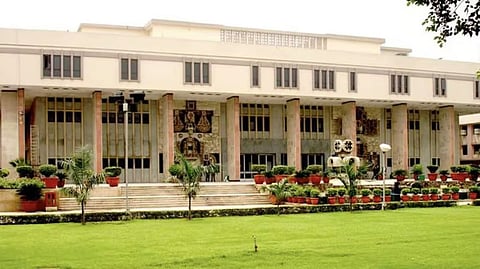

The Delhi High Court (HC) has directed the city government to swiftly formulate and implement a comprehensive action plan, including a Standard Operating Procedure (SOP), to address bomb threats and similar emergencies.
The directive comes in response to a petition highlighting the lack of robust measures to counter such threats in schools.
Justice Sanjeev Narula, in an order dated November 14, emphasised that the SOP must clearly define the roles and responsibilities of all stakeholders, including law enforcement agencies, school administrations, and municipal bodies, ensuring smooth coordination during emergencies.
The court also mandated that all stakeholders be consulted before finalizing the SOP.
"Once finalised, the action plan and SOP shall be disseminated to all concerned parties. Regular training sessions for school staff, students, and other stakeholders should be conducted to ensure effective implementation," the court said.
The high court also instructed the establishment of a grievance redressal mechanism to address issues raised by affected parties. It further recommended periodic updates to the SOP based on feedback and evolving challenges.
The court directed the authorities to complete these steps within eight weeks, ensuring timely action.
The ruling came on a petition filed by Arpit Bhargava, who raised alarm over the lack of preparedness to prevent and manage bomb threats in schools. He argued that such incidents endanger children and signify a collective failure to maintain a safe educational environment.
During the hearings, the Delhi government and police presented draft action plans and measures designed to tackle the issue.
The court also recorded inputs from an association of unaided schools, ensuring a collaborative approach.
While acknowledging the difficulty of completely eliminating bomb threats in today's world, the court stressed the importance of preparedness.
"Such operational strategies are best left to the wisdom of the executive," observed Justice Narula, underscoring the judiciary's limited role in dictating executive modalities.
The court commended the government for its initial steps, including draft action plans and status reports, but noted that these must be finalised and implemented promptly. The petitioner was also permitted to submit further suggestions or identify gaps in the current draft measures.
"These representations shall be considered by Respondents while finalising the action plan and SOP," the court stated.
With these directives, the court disposed of the plea, reiterating the need for proactive governance to address such critical issues.
